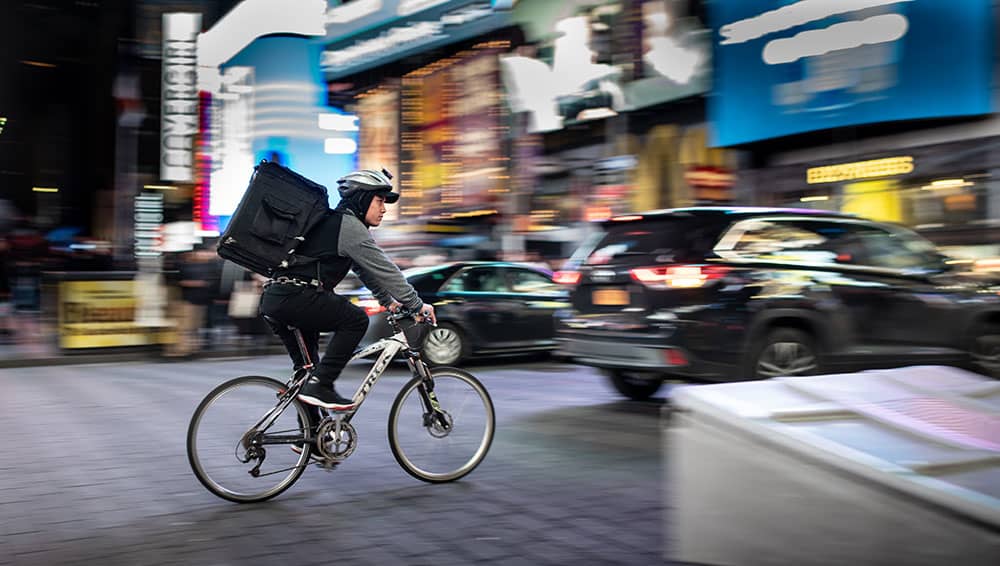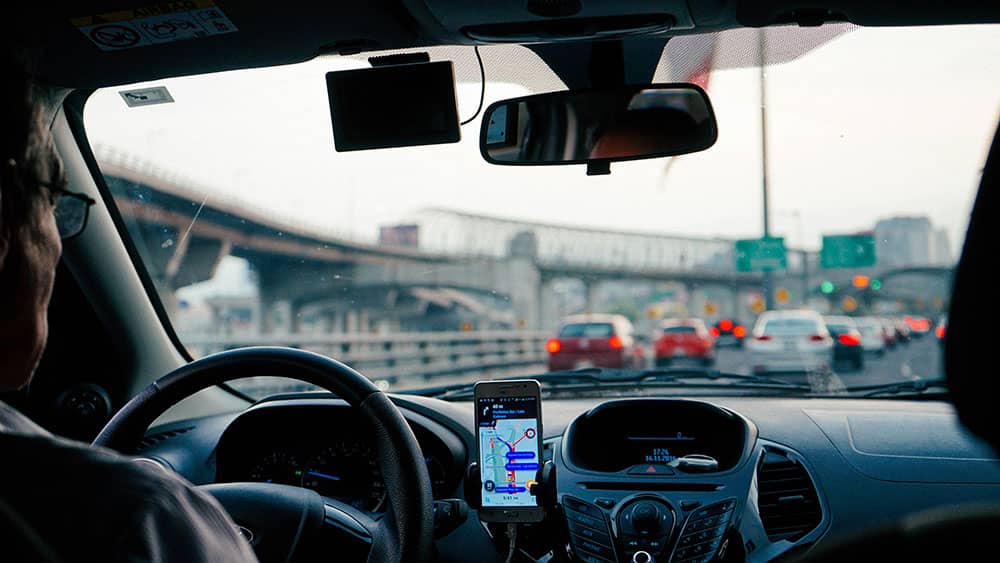[Updated April 19, 2023]
According to the Australian Taxation Office, rideshare drivers earn assessable income. Suppose you’re a rideshare driver who operates under Uber, DiDi, Ola, or similar others. In that case, your assessable income pertains to the total income you earn from rendering services.
Ridesharing means you use your personal vehicle to drive paying passengers to their desired location. It has become an excellent option for people looking to be their own boss. That’s why Rideshare drivers are treated like other self-employed individuals. And as a self-employed worker, you should be aware of how to do your tax returns correctly. That way, you can genuinely benefit from tax deductions that come from your business expenses.
Is Rideshare Delivery Taxed as an Employee?
Rideshare delivery is taxed as a business or contractor rather than as an employee. Unlike an employee, when operating rideshare delivery, you are qualified to make tax claims on your income. Some of the deductible expenses that you can claim include parking, automobile expenditures as well as tolls commissions, licensing, and fees paid to the food delivery platform.
As an employee, your employer withholds part of your income as tax. However, as a Rideshare delivery contractor, none of your income is withheld. Therefore, you may need to enroll into the Pay as You Go (PAYG) system.
ABN and GST Matters for Uber and Other Rideshare Drivers
Aside from income tax, you should also know about Goods and Services Tax (GST). It pertains to the 10% tax on all the goods and services you provide in Australia. Here’s a simple breakdown:
- Rideshare Drivers: As a rideshare driver, you MUST register for GST. Unfortunately, you do not qualify for the $75,000 threshold.
- Food Delivery Drivers: The good news for food delivery drivers, such as Uber Eats, is that they do not need to be GST-registered. However, you are required to do so if your Australian Business Number earns more than $75,000.
If you work as both a rideshare and food delivery driver, you will have to follow the rules imposed for rideshare workers. It means you will need to register for GST.
Being a rideshare driver means you’re operating as a small business, so you should get an Australian Business Number. This 11-digit number represents your business and is essential when you sign up for GST.
Do You Need to Pay for Income Tax?
Because you’re making an income from your ridesharing business, the law requires you to declare your earnings and file everything accurately in your tax return. Calculating your taxable income is easy since it works the same way as with other businesses. Here are easy tips that will help you with your income tax lodgement:
- Know about your total earnings first without considering other deductions, including GST credits.
- You can contact the rideshare operator to get a record of your profits.
- List all the expenses you paid for.
- Then, deduct the amount in your expenses list from your total earnings, which will now be your taxable income.
If you earn lower than $18,200 every year, you will be in the tax-free threshold. It means that you are exempted from paying any income tax. Nevertheless, being in this threshold does not excuse you from lodging a tax return.
If you go over the mentioned amount, you have an obligation to pay your income tax. Many rideshare drivers in the country function the same way as sole traders. Therefore, their income taxes are often at the same rate as other individual taxpayers.
How Much Will You Pay for Taxes?
The amount you will pay will depend on your rideshare profits. These profits come from the passengers that pay you for your services, and you should declare the amount as income. Meanwhile, all the amounts you pay that go to your ridesharing business can be claimed as an expense.
Your income will be computed by adding all the following items:
- Gross fares
- Split fare fees
- City fees
- Airport fees
- Booking fees
- Toll fees
- Tips from passengers
Meanwhile, your expenses will often include:
- Uber service fees
- Toll fees
- City fees
- Booking fees
- Split fare fees
You only have to subtract your total expenses from your income to get your taxable profit. Our calculator will help you determine how much you need to pay for your income tax.

Tax Deductions You Can Claim
You should never pay more than you should when it’s tax time. That’s why it is necessary to calculate tax deductions as part of the process. These deductions help reduce your taxable profit, which in turn leads to lesser tax. Some of the most common deductions that you can claim are:
- Rideshare Charges
- Rideshare service fees
- Split fare fees
- Booking fees
- Government charges
- Airport fees
- Car Expenses (Note that these deductions are only valid if you have a detailed logbook. You should also apportion your tax deduction for business and private use.)
- Fuel
- Insurance fees
- Car repairs
- Vehicle registration fees
- Tyre servicing and replacement
- Other servicing and maintenance costs
- Vehicle cleaning
- Accessories helpful for your ridesharing business
- Hire or rental charges if you don’t have your own car
- Loan (only the interest and not the whole repayment amount)
- Instant Asset Write Off
- Depreciation of certain items, including the car itself
- Others
- Accountancy
- Computer expenses
- Bank expenses
- Training, courses, and education costs
- First aid kit
- Permits and licences
- Parking (only applies when you’re in an active shift)
- Stationery
- Rider amenities (water, tissues, mints, and others)
- Sunglasses
- Expenses You Need to Apportion
- Internet costs
- Mobile phone use
- Music subscription
Don’t be confused with the other costs that the ATO considers as personal expenses. The following are examples and cannot be deducted from your tax return:
- Clothing
- Fines due to illegal parking and others
- Coffee, tea, or any beverage
- Food costs
- Personal comfort and hygiene
- Parking at home
It is stated above that you can claim for sunglasses or a pair that protects you from the sun. However, if you wear prescription glasses, it is not covered and cannot be claimed.
Tax Tips for Rideshare Drivers
Always keep a logbook that records your car usage. The ATO accepts logbooks as evidence to show how you use the vehicle for business purposes. Follow these essentials:
- The logbook should contain 12 continuous weeks of driving records. You can pick any time of the year when you want to document it.
- Only one logbook is required for the whole session or shift. There’s no need for individual delivery records.
- Private and non-business trips should not be logged in the logbook.
- Write down the date and odometer reading from the start to the end of the shift. It can include the kilometres from your home to the final destination, along with the kilometres between trips.
Keep receipts, too. The ATO will accept any receipt, including your bank statement and digital invoices. If you’re claiming for GST credits, it’s a different story because the Business Activity Statement has stricter rules imposed.
You can lodge your own tax return through the MyGov website, and you can do so until the 31st of October. If you lodge via TaxReturn.com.au, the due date will depend on the last time you lodged your tax return. For example, if you have an unlodged tax return on the 30th of June, you can still lodge until the 31st of October. Meanwhile, if you have all previous tax returns lodged on time, your current tax return can be submitted on the 15th of May.
TaxReturn.com.au is the fastest and easiest way to lodge your rideshare tax online. Give us a call or create an account with us today.


